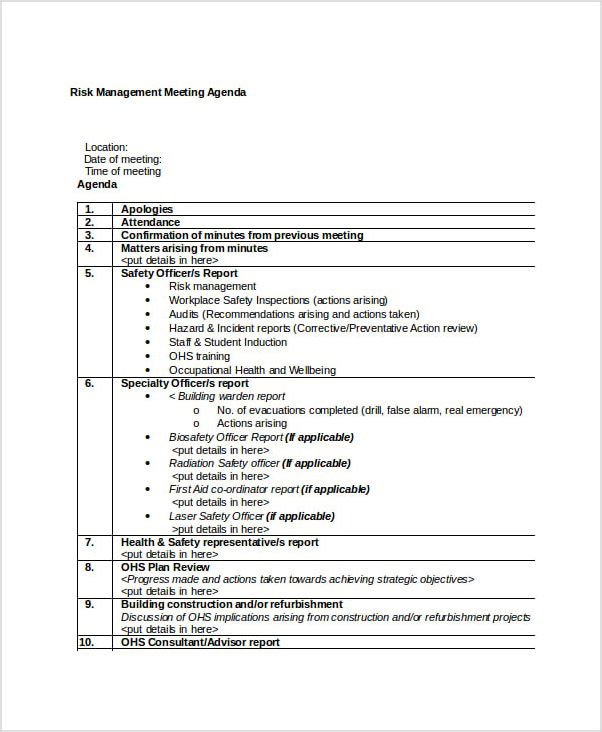Management meetings are an essential part of any organization’s operations. These meetings provide a platform for managers to discuss important business matters, make decisions, and align their teams toward achieving organizational goals. However, without a well-planned agenda, management meetings can become unproductive and time-consuming. This article will explore the importance of a management meeting agenda and provide strategies for creating an effective one.
Why is a management meeting agenda important?
A management meeting agenda serves as a roadmap for the meeting and ensures that all necessary topics are covered within the allocated time. It sets the tone for the meeting, helps maintain focus, and allows participants to come prepared. An agenda also promotes transparency and accountability, as everyone is aware of the topics that will be discussed and the expected outcomes.
Additionally, a well-crafted agenda helps avoid common meeting pitfalls such as going off-topic, excessive discussions, and lack of follow-up on action items. It provides structure and ensures that the meeting stays on track, maximizing the productivity of participants’ time.
How to create an effective management meeting agenda
Creating an effective management meeting agenda requires careful consideration of the meeting’s purpose, the participants’ needs, and the desired outcomes. Here are some strategies to help you create an agenda that leads to productive meetings:
1. Define the meeting’s objectives
Before creating the agenda, clearly define the objectives of the meeting. What do you hope to accomplish? Are there specific decisions that need to be made? By understanding the purpose of the meeting, you can structure the agenda to address these objectives effectively.
2. Prioritize agenda items
Identify the most important topics that need to be discussed and prioritize them accordingly. Start with high-priority items that require immediate attention and leave less urgent matters for the latter part of the meeting. This ensures that crucial decisions are made when participants are most engaged and focused.
3. Allocate time for each agenda item
Assigning specific time slots for each agenda item helps manage the meeting’s duration and prevents discussions from dragging on. Be realistic in your time allocation, ensuring that each topic receives sufficient attention without sacrificing the overall flow of the meeting. If a particular item requires more time, consider scheduling a separate dedicated meeting to address it.
4. Include relevant background information
Provide participants with the necessary context and background information for each agenda item. This allows them to come prepared, understand the topic at hand, and contribute meaningfully to the discussion. Share any relevant documents or reports ahead of time to facilitate informed decision-making.
5. Encourage participant input
Make space in the agenda for participants to contribute their ideas, ask questions, and share their perspectives. This fosters a collaborative and inclusive environment, where everyone feels valued and engaged. Including a dedicated “open floor” or “roundtable discussion” section allows participants to raise any additional topics or concerns not included in the initial agenda.
6. Assign action items and follow up
For each agenda item, clearly define the desired outcome and assign responsibilities. This ensures that decisions made during the meeting are followed through and implemented effectively. Include a section in the agenda to review action items from previous meetings, providing an opportunity to assess progress and address any challenges.
7. Evaluate and improve
After each management meeting, evaluate the effectiveness of the agenda and gather feedback from participants. Did the agenda achieve its objectives? Were there any items that could have been better addressed? Use this feedback to continuously improve your agenda creation process and enhance the overall quality of your management meetings.
Sample management meeting agenda
Here is an example of a management meeting agenda that incorporates the strategies mentioned above:
1. Welcome and opening remarks (5 minutes)
– Introduce the meeting’s purpose and objectives
– Briefly recap previous action items and progress
2. Financial performance review (15 minutes)
– Present financial reports and key metrics
– Discuss any deviations from projections
– Address concerns and propose corrective measures
3. New marketing campaign proposal (30 minutes)
– Share background information on the proposed campaign
– Discuss potential strategies and target audience
– Evaluate budget and resource requirements
– Decide on moving forward with the campaign
4. Operational challenges and solutions (20 minutes)
– Identify current operational challenges
– Brainstorm potential solutions as a team
– Assign responsibilities for implementing solutions
5. Employee engagement initiatives (15 minutes)
– Present employee engagement survey results
– Discuss areas for improvement
– Propose and prioritize employee engagement initiatives
6. Open floor (10 minutes)
– Allow participants to bring up additional topics or concerns
7. Review of action items and follow-up (10 minutes)
– Review action items from the current and previous meetings
– Assign responsibilities and set deadlines for completion
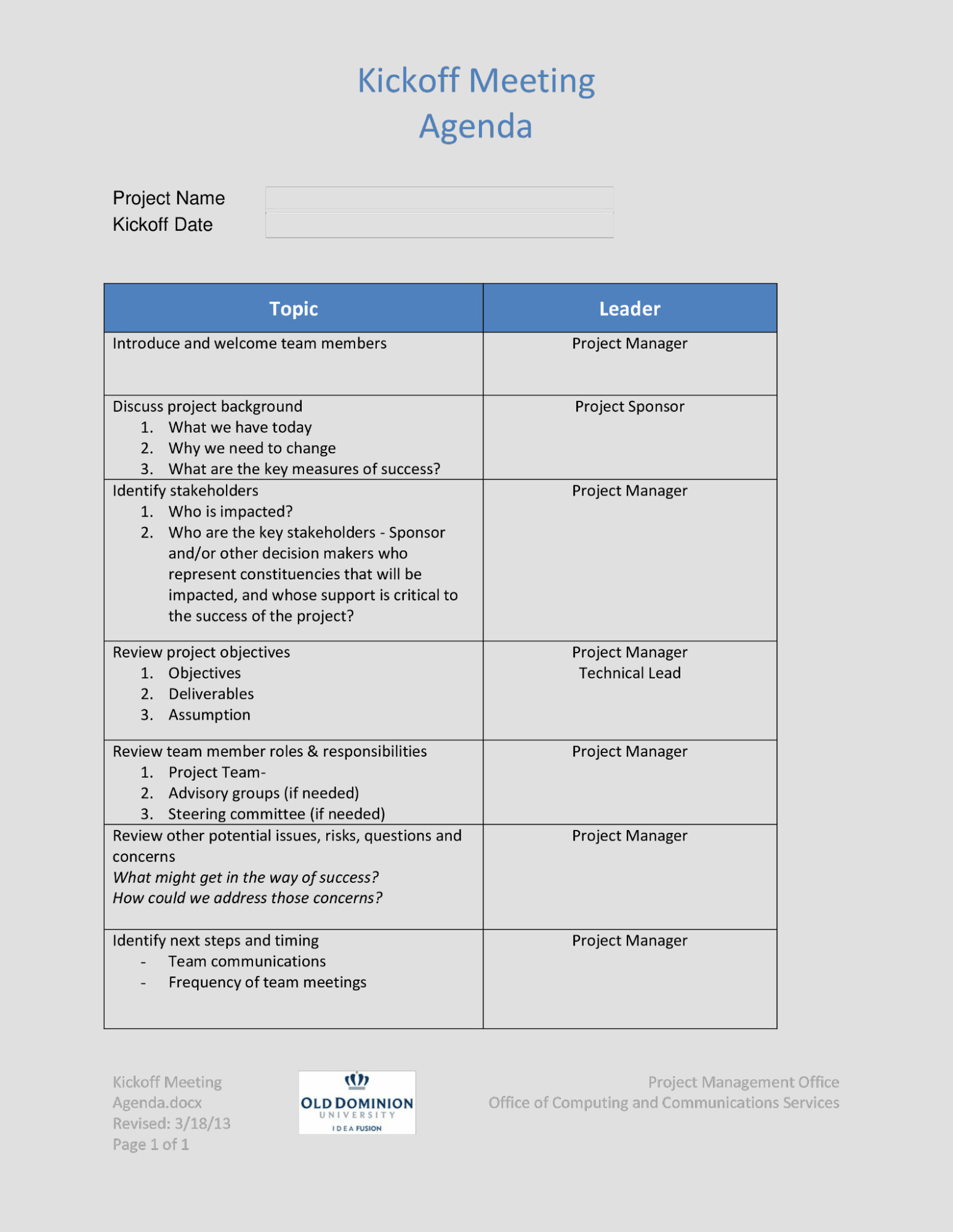
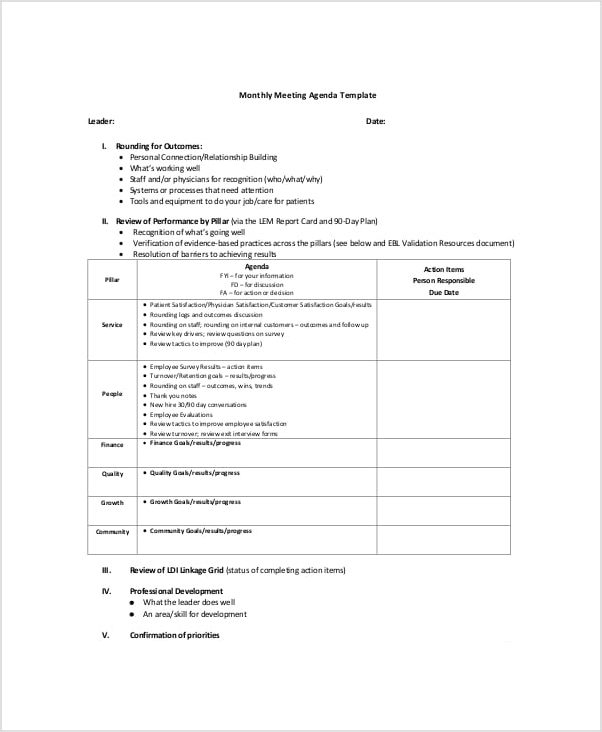
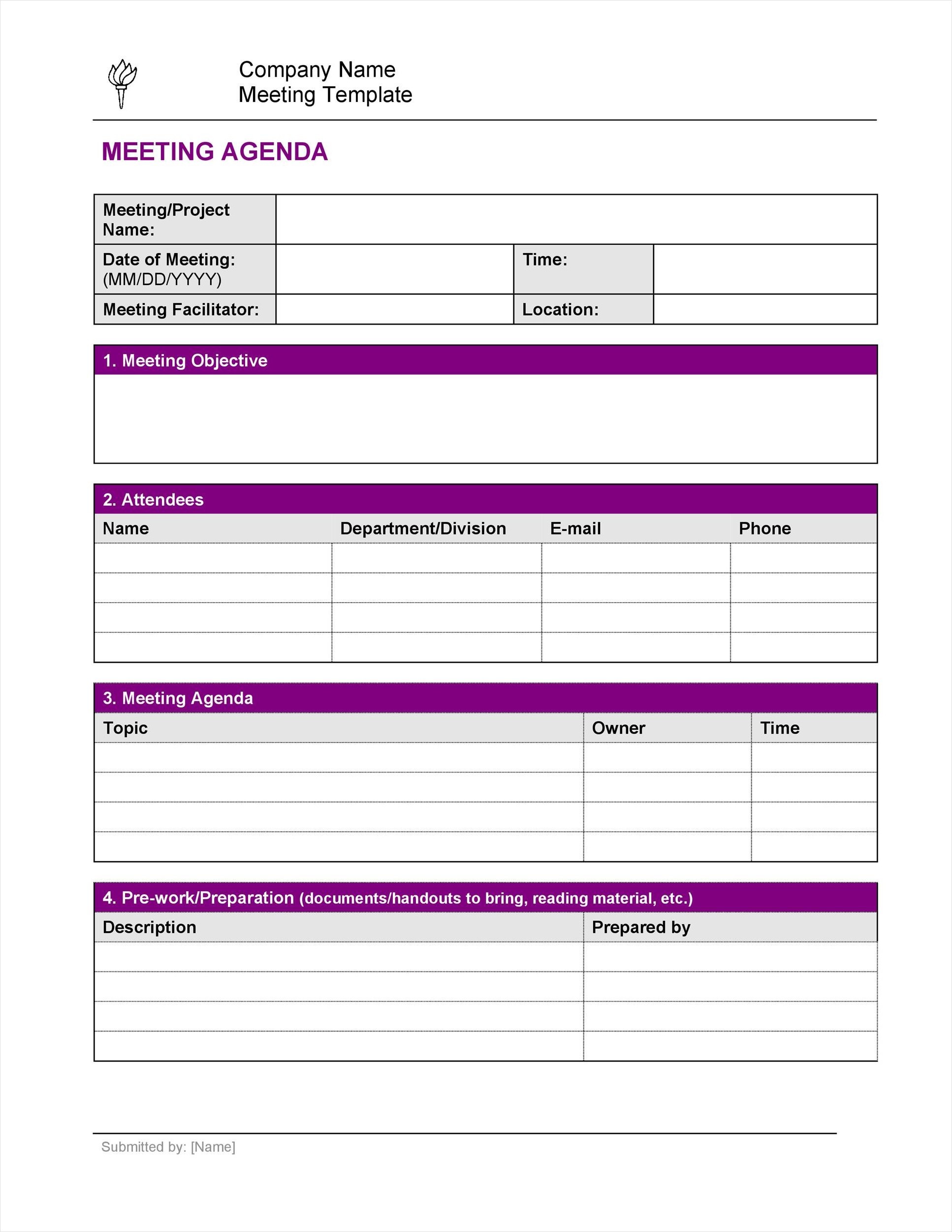
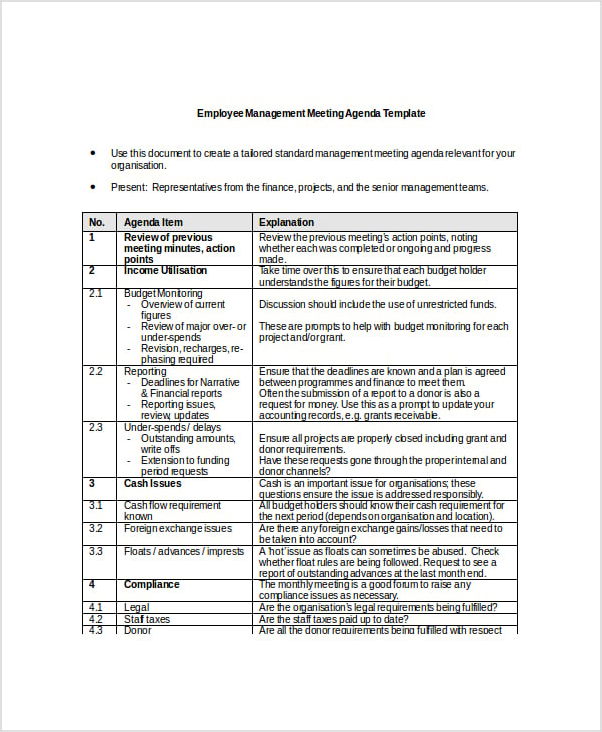
Conclusion
A well-planned and thoughtfully constructed management meeting agenda is crucial for productive and efficient meetings. It provides structure, promotes transparency, and ensures that important topics are addressed within the allocated time. By following the strategies outlined in this article, you can create an agenda that leads to meaningful discussions, informed decision-making, and successful outcomes for your organization.
Management Meeting Agenda Template Excel – Download
